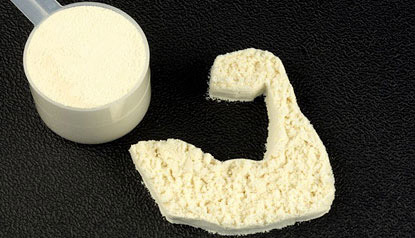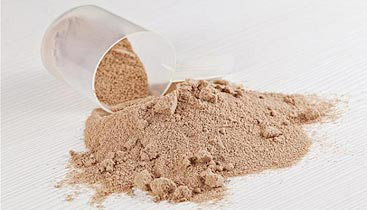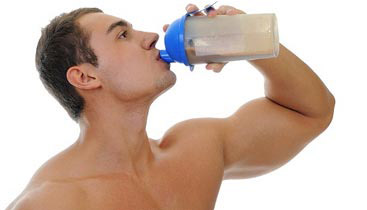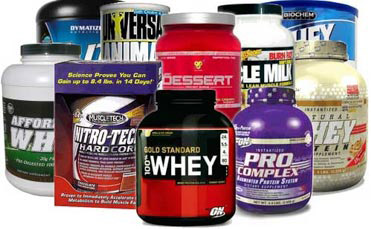“DO I NEED PROTEIN POWDER TO BUILD MUSCLE?”

Of the endless variety of different muscle building supplements available these days, only a very small percentage make it onto my “recommended” list.
The vast majority of fitness supplements out there are way over-hyped, way over-priced, ineffective and most definitely not worth spending your hard-earned money on.
A high quality protein powder, however, is one of the rare few that I do stand behind and recommend.

Including a protein powder as part of your muscle building diet will help to streamline your overall meal plan and reach your daily protein needs in a more convenient way.
Assuming you’re choosing whey, egg or casein as your protein powder source (or some combination of these), you’ll also be receiving a very high quality form of protein with a top-level absorption rate and strong amino acid profile.
All that said, is protein powder a mandatory part of your supplementation plan? Do you NEED protein powder to build muscle?

Although protein powder is certainly a viable addition to your overall program and something I do recommend in most cases, the reality is that it most definitely is not a “must-have”, and you absolutely can reach your full muscle building potential without it.
The mistake that most people make here is in thinking of protein powder as some kind of “magical” substance with over-the-top, super hero-like muscle building effects.
It’s just not the case.
Yes, these powders will provide you with a very high quality form of protein (assuming you choose the right one), but in the context of a complete diet that reaches its total daily protein target through a combination of other whole foods (such as chicken, red meat, fish etc.), it’s really not going to make any measurable difference to your bottom line results whether you include a protein powder in the mix or not.
All forms of protein are ultimately broken down into their individual amino acid building blocks, and as long as you’re getting roughly 0.8 up to around 1 gram of protein per pound of body weight daily from a variety of high quality sources, you’ll easily be receiving enough of the essential amino acids needed to max out your body’s muscle building response.
Remember, just because some protein is good does not mean that more must be better.
Your body can only synthesize a limited amount of lean tissue in any given day, and any excess amino acids above and beyond what can be used for building muscle in that period will simply be converted and used for energy.
Don’t get me wrong here; I definitely do think that most serious trainees will be better off by including a protein powder in their diet.
All I’m saying here is that it is not mandatory, and its primary benefit is simply a matter of convenience more than anything else.
Most people who are busy and on the go (or perhaps who don’t have a large appetite) will find it much easier to consume, say, 2-3 whole food meals and 2-3 shakes per day as opposed to 4-6 solid whole food meals.
It’s much faster and easier to mix up a shake containing 30 or 40 grams of protein along with some blended carbs and fats in liquid form as opposed to sitting down to chicken and rice or steak and potatoes every time you’re due for a meal.
It really just comes down to you as an individual and depends on what type of dietary structure allows you to stick to your meal plan in the most effective way, and what you enjoy most in terms of taste.
“Do I Need Protein Powder To Build Muscle?” – Final Word

Whether or not you decide to include a protein powder in your diet ultimately just comes down to convenience and taste.
No, you don’t “need” a protein powder to build muscle at your maximum potential, but in most cases it will make your diet a lot easier to follow over the long run.
A combination of protein smoothies and solid foods is generally a more convenient approach to gaining muscle than having to prepare and eat whole food meals only. This is especially true if you have reasonably high daily caloric needs.
In addition, if you choose the right product, the cost per serving will usually be around the same or even less than what you’d pay for a whole food source of equal protein content.
I personally use Optimum Nutrition 100% Whey. Dymatize Elite Whey and Cellucor Cor-Performance Whey are also good choices. (Please note that I don’t have any specific affiliation with these companies)
If you found this article helpful, make sure to sign up for your FREE custom fitness plan below...




